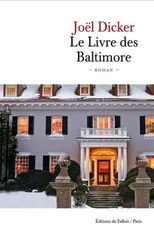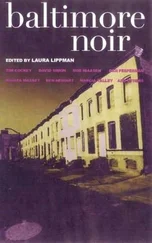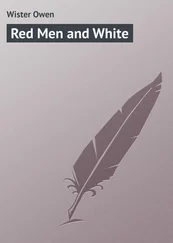Owen Wister - Lady Baltimore
Здесь есть возможность читать онлайн «Owen Wister - Lady Baltimore» весь текст электронной книги совершенно бесплатно (целиком полную версию без сокращений). В некоторых случаях можно слушать аудио, скачать через торрент в формате fb2 и присутствует краткое содержание. Жанр: Вестерн, на английском языке. Описание произведения, (предисловие) а так же отзывы посетителей доступны на портале библиотеки ЛибКат.
- Название:Lady Baltimore
- Автор:
- Жанр:
- Год:неизвестен
- ISBN:нет данных
- Рейтинг книги:5 / 5. Голосов: 1
-
Избранное:Добавить в избранное
- Отзывы:
-
Ваша оценка:
- 100
- 1
- 2
- 3
- 4
- 5
Lady Baltimore: краткое содержание, описание и аннотация
Предлагаем к чтению аннотацию, описание, краткое содержание или предисловие (зависит от того, что написал сам автор книги «Lady Baltimore»). Если вы не нашли необходимую информацию о книге — напишите в комментариях, мы постараемся отыскать её.
Lady Baltimore — читать онлайн бесплатно полную книгу (весь текст) целиком
Ниже представлен текст книги, разбитый по страницам. Система сохранения места последней прочитанной страницы, позволяет с удобством читать онлайн бесплатно книгу «Lady Baltimore», без необходимости каждый раз заново искать на чём Вы остановились. Поставьте закладку, и сможете в любой момент перейти на страницу, на которой закончили чтение.
Интервал:
Закладка:
We had made now considerable progress, and were come to a space of sand and cabins and intersecting railroad tracks, where freight cars and locomotives stood, and negroes of all shapes, but of one lowering and ragged appearance, lounged and stared.
"There used to be a murder here about once a day," said John, "before the dispensary system. Now, it is about once a week."
"That law is of benefit, then?" I inquired.
"To those who drink the whiskey, possibly; certainly to those who sell it!" And he condensed for me the long story of the state dispensary, which in brief appeared to be that South Carolina had gone into the liquor business. The profits were to pay for compulsory education; the liquor was to be pure; society and sobriety were to be advanced: such had been the threefold promise, of which the threefold fulfillment was — defeat of the compulsory education bill, a political monopoly enriching favored distillers, "and lately," said John, "a thoroughly democratic whiskey for the plain people. Pay ten cents for a bottle of X, if you're curious. It may not poison you — but the murders are coming up again."
"What a delightful example of government ownership!" I exclaimed.
But John in Kings Port was not in the way of hearing that cure-all policy discussed, and I therefore explained it to him. He did not seem to grasp my explanation.
"I don't see how it would change anything," he remarked, "beyond switching the stealing from one set of hands to another."
I put on a face of concern. "What? You don't believe in our patent American short-cuts?"
"Short-cuts?"
"Certainly. Short-cuts to universal happiness, universal honesty, universal everything. For instance: Don't make a boy study four years for a college degree; just cut the time in half, and you've got a short-cut to education. Write it down that man is equal. That settles it. You'll notice how equal he is at once. Write it down that the negro shall vote. You'll observe how instantly he is fit for the suffrage. Now they want it written down that government shall take all the wicked corporations, because then corruption will disappear from the face of the earth. You'll find the farmers presently having it written down that all hens must hatch their eggs in a week, and next, a league of earnest women will advocate a Constitutional amendment that men only shall bring forth children. Oh, we Americans are very thorough!" And I laughed.
But John's face was not gay. "Well," he mused, "South Carolina took a short-cut to pure liquor and sober citizens — and reached instead a new den of thieves. Is the whole country sick?"
"Sick to the marrow, my friend; but young and vigorous still. A nation in its long life has many illnesses before the one it dies of. But we shall need some strong medicine if we do not get well soon."
"What kind?"
"Ah, that's beyond any one! And we have several things the matter with us — as bad a case, for example, of complacency as I've met in history. Complacency's a very dangerous disease, seldom got rid of without the purge of a great calamity. And worse, where does our dishonesty begin, and where end? The boy goes to college, and there in football it awaits him; he graduates, and in the down-town office it smirks at him; he rises into the confidence of his superiors, the town's chief citizens, and finds their gray hairs crowned with it, — the very men he has looked up to, believed in, his ideals, his examples, the merchant prince, the railroad magnate, the president of insurance companies — all dirty rascals! Presently he faces worldly success or failure, and then, in the new ocean of mind that has swallowed morals up, he sinks with his isolated honesty, like a fool, or swims to respectability with his brother knaves. And into this mess the immigrant sewage of Europe is steadily pouring. Such is our continent to-day, with all its fair winds and tides and fields favorable to us, and only our shallow, complacent, dishonest selves against us! But don't let these considerations make you gloomy; for (I must say it again) nothing is final; and even if we rot before we ripen — which would be a wholly novel phenomenon — we shall have made our contribution to mankind in demonstrating by our collapse that the sow's ear belongs with the rest of the animal, and not in the voting booth or the legislature, and that the doctrine of universal suffrage should have waited until men were born honest and equal. That in itself would be a memorable service to have rendered."
We had come into the divine, sad stillness of the woods, where the warm sunlight shone through the gray moss, lighting the curtained solitudes away and away into the depths of the golden afternoon; and somewhere amid the miles of sleeping wilderness sounded the hoarse honk of the automobile. The Replacers were abroad, enjoying what they could in this country where they did not belong, and which did not as yet belong to them. Once again we heard their honk off to our left, from a farther distance, and I am glad to say that we did not see them at all.
"If," said John Mayrant, "what you have said is true, the nation had better get on its knees and pray God to give it grace."
I looked at the boy and saw that his countenance had grown very fine. "The act," I said, "would bring grace, wherever it comes from."
"Yes," he assented. "If in the stars and awfulness of space there's nothing, that does not trouble me; for my greater self is inside me, safe. And our country has a greater self somewhere. Think!"
"I do not have to think," I replied, "when I know the nobleness we have risen to at times."
"And I," he pursued, "happen to believe it is not all only stars and space; and that God, as much as any ship-builder, rejoices to watch every tiniest boat meet and brave the storm."
Out of his troubles he had brought such mood, sweetness instead of bitterness; he was saying as plainly as if his actual words said it, "Misfortune has come to me, and I am going to make the best of it." His nobleness, his moral elegance, compelled him to this, and I envied him, not sure if I myself, thus placed, would acquit myself so well. And there was in his sweetness a contagion that strangely reconciled me to the troubled aspects of our national hour. I thought, "Invisible among our eighty millions there is a quiet legion living untainted in the depths, while the yellow rich, the prismatic scum and bubbles, boil on the surface." Yes, he had accidentally helped me, and I wished doubly that I might help him. It was well enough he should feel he must not shirk his duty, but how much better if he could be led to see that marrying where he did not love was no duty of his.
I knew what I had to say to him, but lacked the beginning of it; and of this beginning I was in search as we drove up among the live-oaks of Udolpho to the little club-house, or hunting lodge, where a negro and his wife received us, and took the baskets and set about preparing supper. My beginning sat so heavily upon my attention that I took scant notice of Udolpho as we walked about its adjacent grounds in the twilight before supper, and John Mayrant pointed out to me its fine old trees, its placid stream, and bade me admire the snug character of the hunting lodge, buried away for bachelors' delights deep in the heart of the pleasant forest. I heard him indulging in memories and anecdotes of date sittings after long hunts; but I was myself always on a hunt for my beginning, and none of his words clearly reached my intelligence until I was aware of his reciting an excellently pertinent couplet —
"If you would hold your father's land,
You must wash your throat before your hand—"
and found myself standing by the lodge table, upon which he had set two glasses, containing, I soon ascertained, gin, vermouth, orange bitters, and a cherry at the bottom — all which he had very skillfully mingled himself in the happiest proportions.
Читать дальшеИнтервал:
Закладка:
Похожие книги на «Lady Baltimore»
Представляем Вашему вниманию похожие книги на «Lady Baltimore» списком для выбора. Мы отобрали схожую по названию и смыслу литературу в надежде предоставить читателям больше вариантов отыскать новые, интересные, ещё непрочитанные произведения.
Обсуждение, отзывы о книге «Lady Baltimore» и просто собственные мнения читателей. Оставьте ваши комментарии, напишите, что Вы думаете о произведении, его смысле или главных героях. Укажите что конкретно понравилось, а что нет, и почему Вы так считаете.










